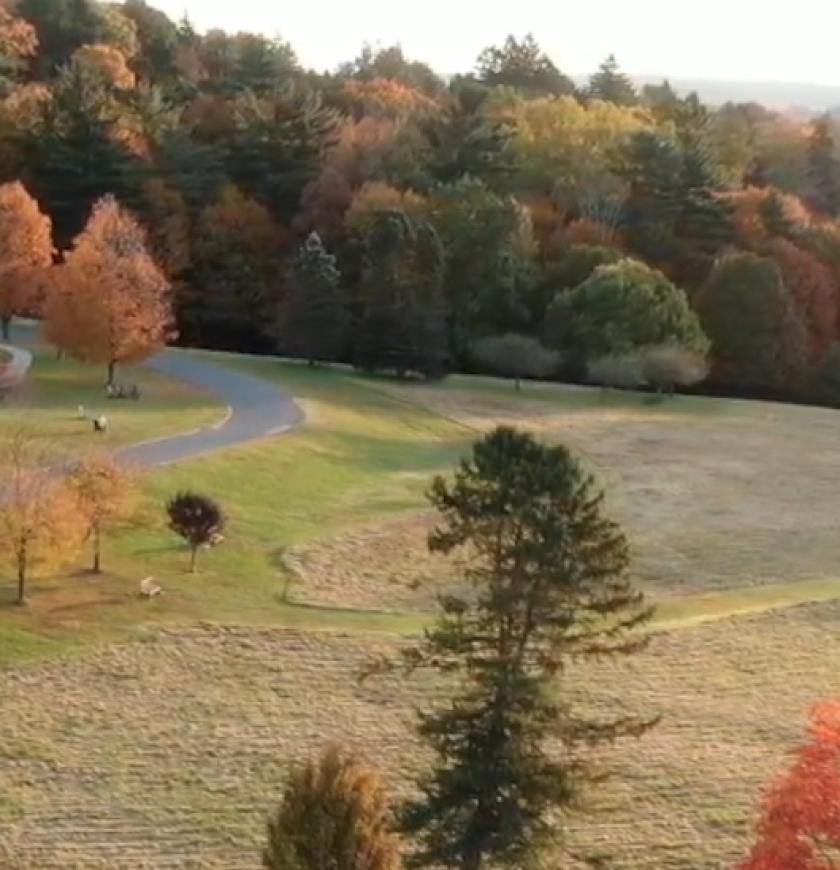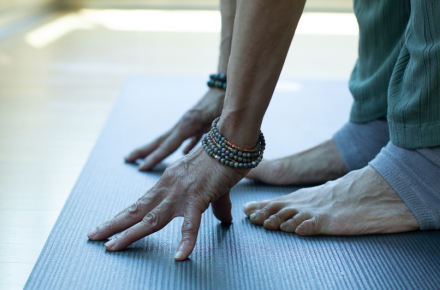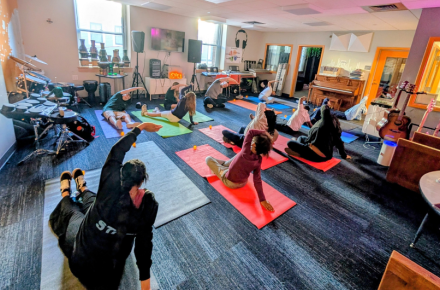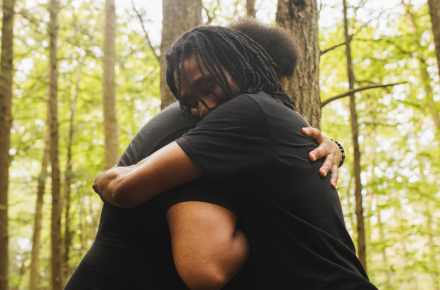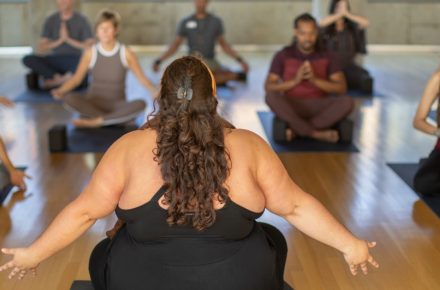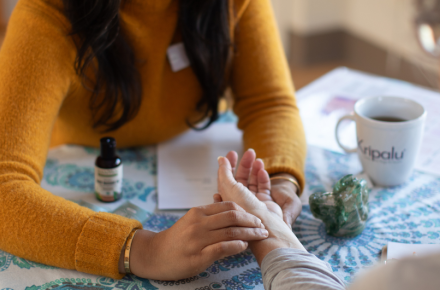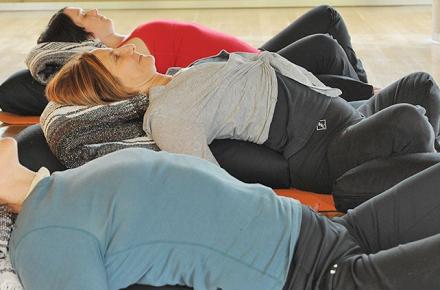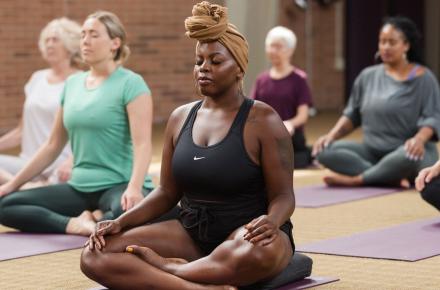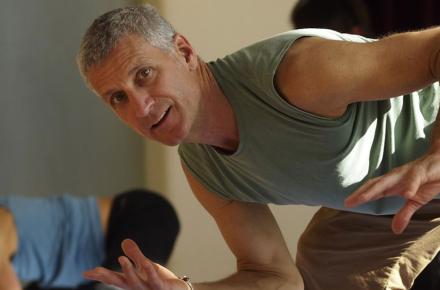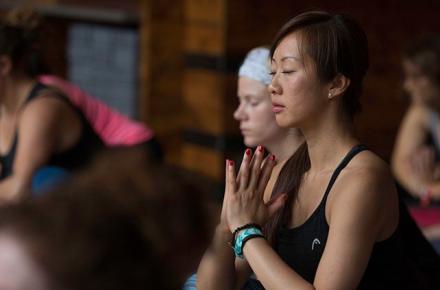The Path of Forgiveness

I remember the day that I realized I had finally forgiven everyone for everything. I had been doing the forgiveness practices of repeating phrases of forgiveness toward myself, toward those whom had harmed me, and toward those whom I had harmed for over 10 years at that point. It had been a long and often painful process of letting go.
My heart had been heavily defended for most of my life. As a child, my life had become so painful and confusing that I was suicidal. My parents divorced when I was two years old. My mother was struggling with addiction, my father was often unavailable due to his own commitment to meditation and teaching. My mother remarried and had twins when I was five years old, and my stepfather was abusive. It was around that time that I began to contemplate killing myself. With the birth of my younger brother and sister, it felt clear to me that there wasn’t enough attention and love to go around. I felt left out, abandoned and all alone. Suicide was my security blanket, my “get out of jail free” card.
That was when I learned to close my heart. To shut down my emotional needs, to push away the feelings of vulnerability. That was also what led me to start getting high, and smoking and drinking. I learned early on that drugs took the edge off the feelings of despair and loneliness. I began acting out, lighting fires, stealing, lying, and becoming violent. I suppressed my pain the only ways I knew how. I began to hate. I hated the world, and I hated myself and who I had become. I was 17 years old.
While in jail for my third felony arrest, I began to meditate. I stopped taking drugs and drinking. I turned my attention inward and began the process of healing, a process that continues to this day.
Ten years into my meditation practice, that moment of freedom from all conscious resentment or ill will toward anyone living or dead was the first time in my life that I truly understood the Buddha’s teachings on loving-kindness. But along with the insight into the potential of an unconditionally loving heart, came a delusion: I thought that I would feel that way forever. I was somehow holding the mistaken view of permanence. I had been working hard for freedom; once I experienced a moment of it, I expected it to last. But like everything else in this heart/mind and world, it was impermanent.
The experience of forgiveness is a momentary release. In reality, we don’t and can’t forgive forever, only for that present moment. This is both good and bad news. The good part is that you can stop judging yourself for your inability to completely and absolutely let go of resentments once and for all. We forgive in one moment and get resentful again in the next. It is not a failure to forgive, it is just a failure to understand impermanence. The bad news is that forgiveness is not something that we will ever be done with; it is going to be an ongoing aspect of our lives and it necessitates a vigilant practice of moment-to-moment letting go.
Although it has been over 10 years since that first moment of freedom from the pains and resentments of my past, I still practice forgiveness on a daily basis. But it is no longer a chore; it has become a simple and natural way of responding to my heart/mind when feelings of hurt, fear, injustice, or betrayal arise. I now understand that freedom from these negative feelings is not a distant goal, but is available right here in this moment. If I let go and respond with compassion and forgiveness, I will be free. If I continue to grasp and wallow in my painful righteousness, I will continue to suffer. And of course, at times, I do still choose the path of suffering—but less and less often. Knowing that freedom is readily available has drastically changed my life. I no longer have to tolerate unnecessary sorrow.
Traditionally in Buddhism, forgiveness is done through the practice of repeating phrases of forgiveness toward oneself, toward those who have harmed us, and toward those whom we have harmed. Forgiving ourselves can often be the most difficult. The first step toward forgiving ourselves is understanding that the mind is not under our full control. Understanding this, we can then begin to influence our relationship to the mind. This gradual change in how we relate to the thinking mind leads to a change in how we relate to the past, to the anger we have been holding onto and to ourselves.
As I began the long process of forgiveness, I found it much easier to forgive myself as a confused child than to approach my adult pain. Recognizing that, I placed a picture of myself as a child on the altar where I meditate. Every day when practicing meditation, I sent forgiveness to that kid who became the man who had experienced and caused great harm. Gradually, I became friendly with the child in the photograph. I began to care about him and all the confusion he experienced. Eventually, I was able to forgive him—the younger version of me— for allowing his confusion to hurt me and so many others. From that place of understanding and mercy, I was then able to grant myself as an adult that same forgiveness.
Asking for forgiveness is the next piece of the puzzle. As a systematic meditative training, we go back through our lives and bring to mind everyone who we have caused harm. We take full responsibility and we ask for forgiveness. When we humbly accept that at times in our life we have been the aggressor or abandoner or unkind one, and we see that every time it was because of our own suffering and confusion, it becomes easier to see that those who hurt us were similarly confused. It makes accessing compassion for our enemies a little easier.
While some resentments seem to vanish forever, others certainly come and go. The most important thing to remember is that we must live in the present, and if, in the present moment, we are still holding onto old wounds and betrayals, it is in this moment that forgiveness is called for. The experience of forgiveness may be temporary. Deeper levels of hurt may be revealed. If and when that happens, we have the tools to forgive again and again.
Forgiveness Meditation Instructions
For this formal forgiveness practice, it may be good to create an altar. It could be just a corner of the room, for example, or a small table where you place some photographs or objects that remind you of your intention to forgive.
- Find a comfortable place to sit. Relax into the sitting posture. Take a few moments to settle into the position by intentionally releasing any held tension in your face, neck, shoulders, chest, or abdomen. Bring your attention to the present moment through the breath awareness practice.
- After settling into the present-time experience of sitting with awareness of the breath, allow the breath to come and go from your heart’s center. Imagine breathing directly in and out of your heart. Feel what is present in your heart-mind and begin to set your intention to let go of the past through letting go of resentments. Say the word “forgiveness” in your mind and acknowledge how it feels to consider letting go.
- When you are ready, bring to mind some of the ways that you have harmed others, have betrayed or abandoned them. Include both the intentional and unintentional acts of harm you have participated in. Acknowledge and feel the anger, pain, fear, or confusion that motivated your actions.
- Begin to ask for forgiveness from those you have harmed:
“I ask for your forgiveness.”
“Please forgive me for having caused you harm.”
“I now understand that I was unskillful and that my actions hurt you, and I ask for your forgiveness.”
- Pause between each phrase, bringing attention to your heart/mind/body’s reactions to these practices. Feel the feelings that arise, or the lack of feeling. Acknowledge the desire to be forgiven. If the mind gets too lost in the story and begins rationalizing and blaming, simply bring your attention back to the breath and body in the present moment, then continue repeating the phrases. Spend some time repeating these phrases and reflecting on your past unskillfulness, remembering to soften your belly when it gets tight with judgment or fear.
- Relax back into breathing in and out of your heart’s center. Take a few moments to let go of the last aspect of the exercise.
- Then begin to reflect on all of the ways in which you have been harmed in this lifetime. Remember that you are attempting to forgive the actors (those who took the action), not the actions themselves, and that, just as you have been confused and unskillful at times, those who have hurt you were also suffering or confused.
- Bring to mind and invite back into your heart those who have caused you harm. With as much mercy and compassion as possible, begin offering forgiveness to those who have harmed you, those whom you have been holding resentment toward, with these same phrases:
“I forgive you.”
“I forgive you for all of the ways that you have caused me harm.”
“I now offer you forgiveness, whether the hurt came through your actions, thoughts, or words.”
“I know you are responsible for your actions, and I offer you forgiveness.”
- Pause between each phrase, bringing attention to your heart/mind/body’s reactions to these practices. Feel the feelings that arise, or the lack of feeling. Acknowledge the desire to forgive.
- If the mind gets too lost in the story and begins rationalizing and blaming, simply bring the attention back to the breath and body in the present moment, then begin repeating the phrases again.
- After some time of asking for forgiveness, let go of the phrases and bring attention back to your direct experience of the present moment, feeling the breath as it comes and goes, softening the belly, and relaxing into the present. Attempt to let go of all levels of this exercise, relaxing back into the experience of your breath at the heart’s center.
- When you are ready, let go of the reflection on those that have harmed you and bring your awareness back to yourself. Relax back into breathing in and out of your heart’s center. Take a few moments to let go of the last aspect of the exercise.
- When you are ready, begin to reflect on yourself. Acknowledge all of the ways that you have harmed yourself. Contemplate your life and your thoughts, feelings, and actions toward yourself. Allow a heartfelt experience of the judgmental and critical feelings you carry toward yourself. Just as we have harmed others, there are so many ways that we have hurt ourselves. We have betrayed and abandoned ourselves many times, through our thoughts, words, and deeds—sometimes intentionally, often unintentionally.
- Begin to feel the physical and mental experience of sorrow and grief for yourself and the confusion in your life. Breathing into each moment, with each feeling that arises, soften and begin to invite yourself back into your heart. Allow forgiveness to arise.
- Picture yourself now, or at any time in your life, and reflect on all of the ways in which you have judged, criticized, and caused emotional or physical harm to yourself. With as much mercy and compassion as possible, begin to offer yourself forgiveness, perhaps picturing yourself as a child and inviting the disowned aspects of yourself back into your heart as you repeat the phrases:
“I forgive you.”
“I forgive you for all of the ways that you have caused me harm.”
“I now offer you forgiveness, whether the hurt came through my actions, thoughts, or words.”
“I know I am responsible for my actions, and I offer myself forgiveness."
- Pause between each phrase, bringing attention to your heart/ mind/body’s reactions to these practices. Feel the feelings that arise, or the lack of feelings. Acknowledge the desire to be forgiven.
- If the mind gets too lost in the story and begins rationalizing and blaming, simply bring the attention back to the breath and body in the present moment, then begin repeating the phrases again.
- Send yourself a moment of gratitude for trying to free yourself from the long-held resentments that make life more difficult than it needs to be.
- When you are ready, allow your eyes to open and attention to come back into the room or space you are in.
Excerpted with permission from The Heart of the Revolution: The Buddha's Radical Teachings on Forgiveness, Compassion, and Kindness, by Noah Levine, © 2011, Harper Collins.


